Submitted by WA Contents
reSITE revealed "creative paradoxes" on housing at its 2018 Conference
Czech Republic Architecture News - Jun 21, 2018 - 04:58 19075 views
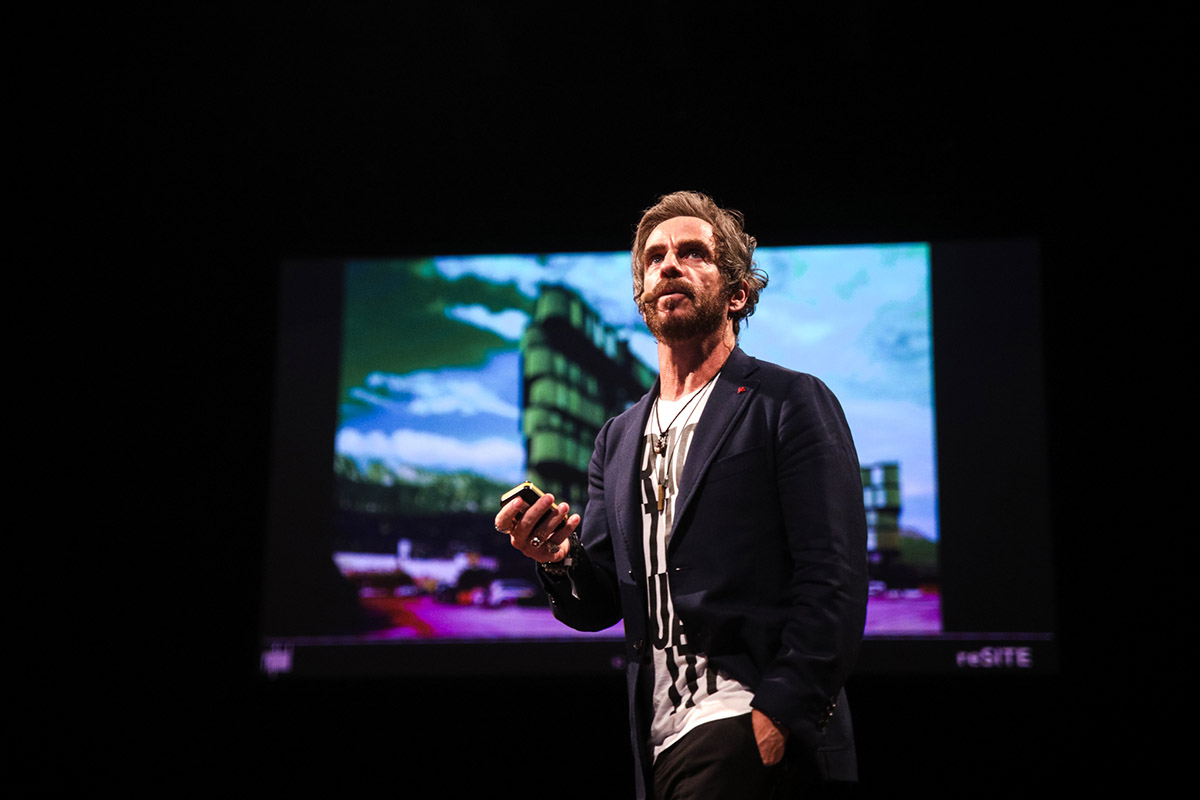
reSITE, the world's most dynamic urbanism and architecture event, has concluded its 2018 Conference on June 14–15, 2018 at Prague’s Forum Karlin.
By setting its theme as "ACCOMMODATE", reSITE's this year's conference has revealed some "creative paradoxes" on housing and affordable living, which have been feverishly discussed with creative thinkers, architects, city leaders, experts and innovative minds at the reSITE's 2018 stage.
While some blame creativity as being a factor of rising the cost of living in attractive cities, thinkers, architects, municipal leaders and developers who spoke at reSITE 2018 ACCOMMODATE in Prague have unanimously called for creative solutions to the housing challenge. "Is building more tech into our houses moving us towards connection or isolation?," said Martin Barry, Founder of reSITE.
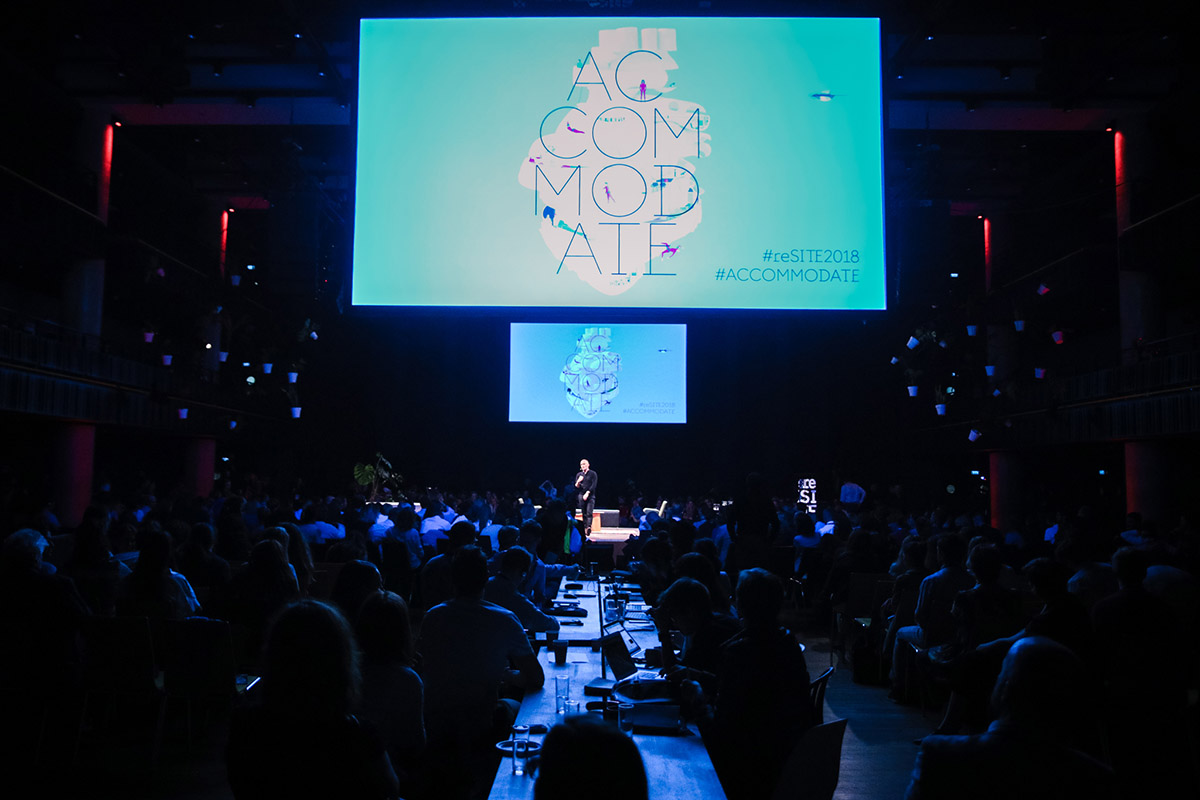
Martin Barry, Founder of reSITE, is giving his opening speech at reSITE
Sou Fujimoto, BMW-MINI, Airbnb, WeWork/WeLive and OMA’s Reinier de Graaf, Jeanne Gang of Studio Gang, Michel Rojkind were among the speakers at the reSITE 2018, one of Europe’s top annualinternational forums showcasing top solutions forcities and attended by the region’s top business,civic and design leaders.
How and where do we want to live — and how will we afford it? Nearly 1200 visitors registered for reSITE 2018: ACCOMMODATE on June 14—15 in Prague, where a global lineup of speakers explored the future of cities and housing. Architects Jeanne Gang, Sou Fujimoto, and Michel Rojkind offered new visions for living together in public space; WeWork, MINI, and Design Haus Liberty presented bold plans for co-living, and dozens of architects, mayors, planners, and investors debated how to solve the global housing crisis.
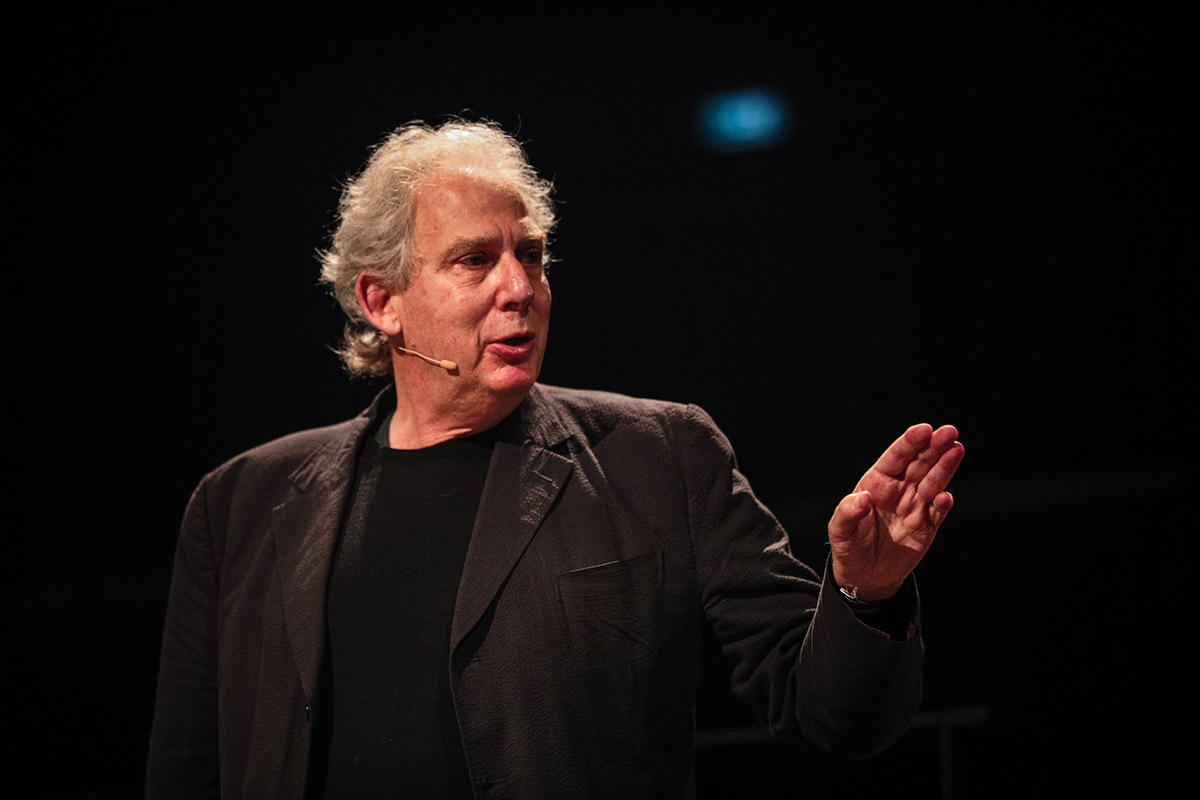
Ricky Burdett, Director LSE Cities, London, UK, at reSITE's main stage
"You can’t talk about housing in isolation, housing needs to have a love affair with planning," said Ricky Burdett. “We need creative planners,” was heard from development and the investment side.
LSE Cities director Ricky Burdett’s opening keynote framed the challenge succinctly: "Inequality is baked into the design of cities." What we need, he said, is "convergence — living in the areas where everyone has the same opportunities, not opportunities based on postal code," he added.
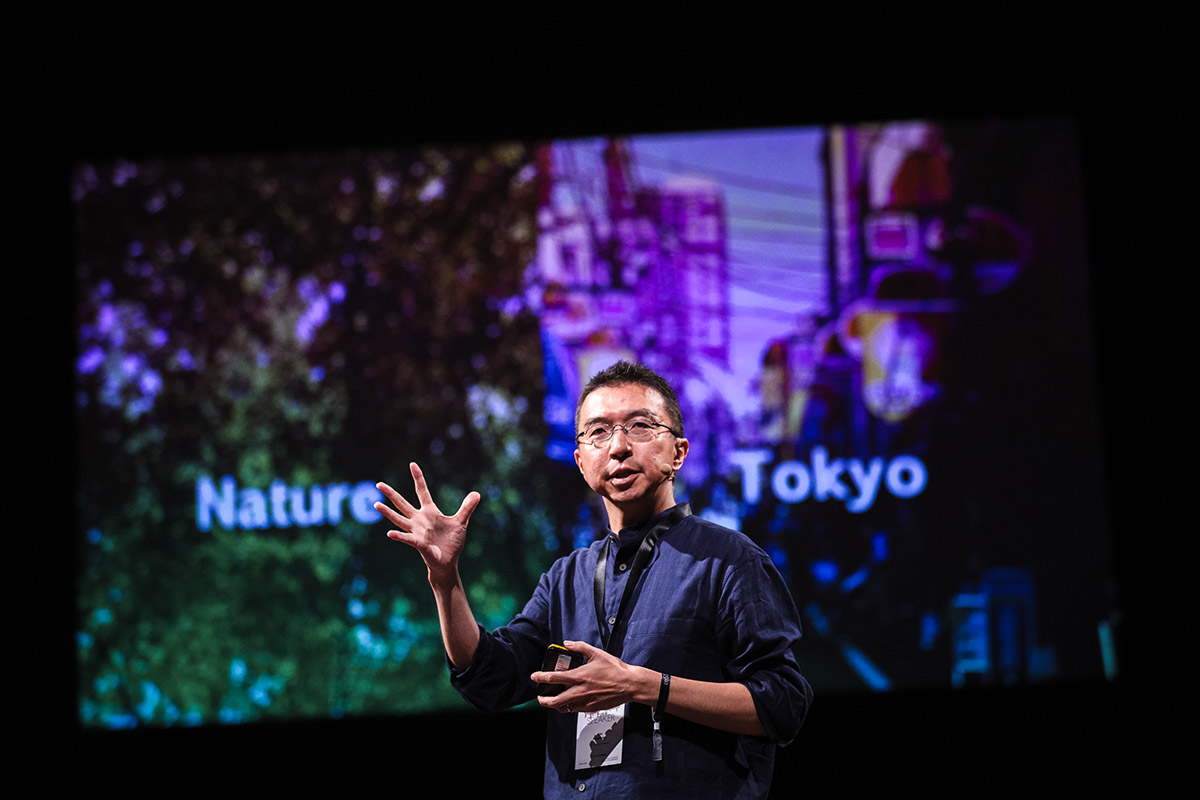
Sou Fujimoto at reSITE's 2018 stage
Japanese architect Sou Fujimoto considers that the schools, and art pieces, act as acupuncture in developing cities, touching a nerve that tweaks the whole body.
Sou Fujimoto sees a city as a society where you don’t have to force everybody to do something, but provide the spaces and choices. "The schools, and art pieces, act as acupuncture in developing cities: they touch a nerve that tweaks the whole body."
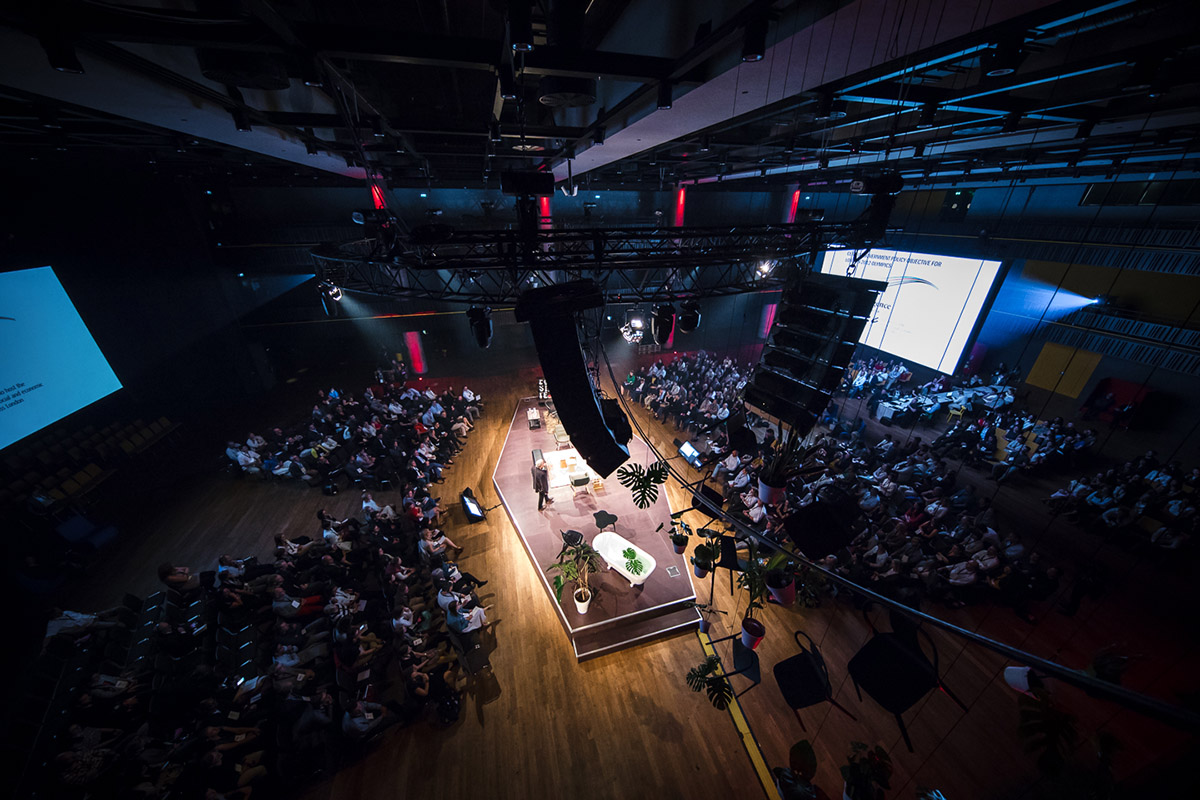
"You can’t buy creativity, you can only nurture it," was the observation of Amsterdam’s Night Mayor Mirik Milan, while Michel Rojkind insisted on the social reconstruction that needs to be involved in every space we design and build.
"We have to design spaces for other things to happen," might those other things be inclusiveness and affordability. Today’s most inspiring examples of experimenting with new living concepts were presented by MINI Living, WeLive and the civic platform URBZ.
"MINI is blurring the boundaries between public and private. You have the opportunity to share with your neighbor at any scale," added Hauser.
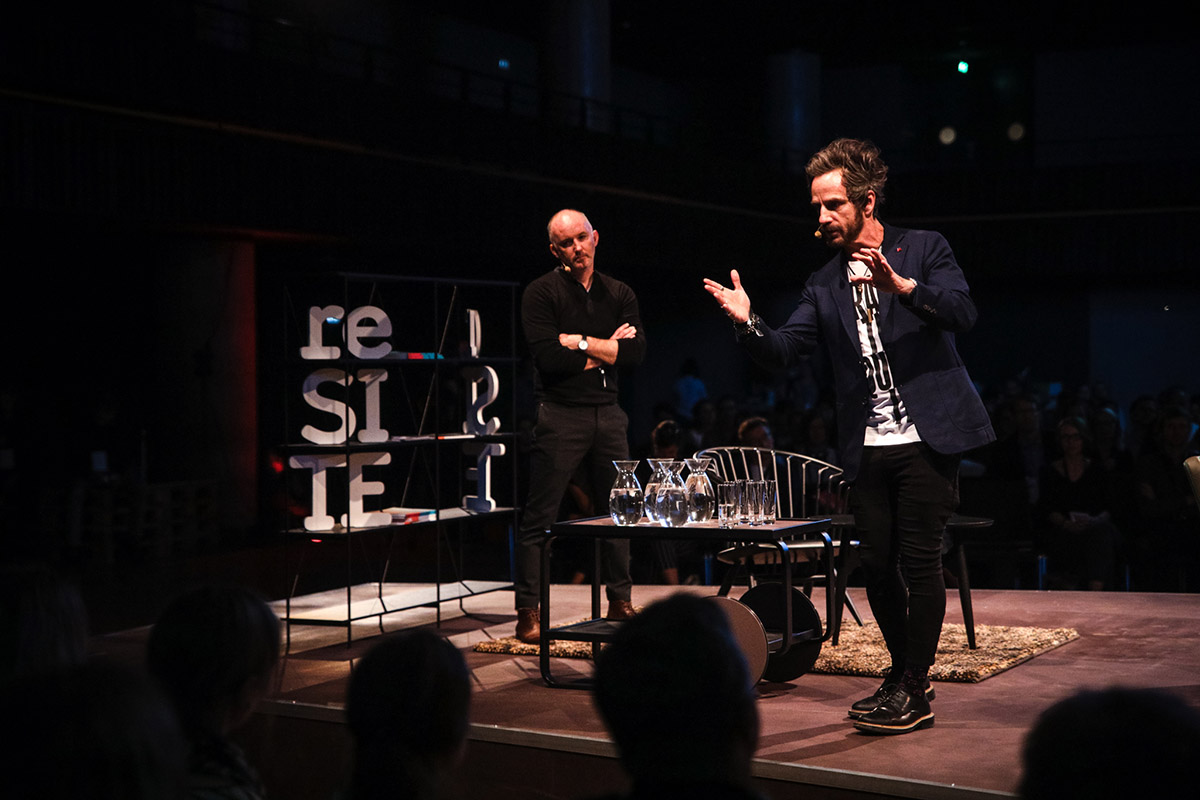
Martin Barry, founder of reSITE, and Michel Rojkind at reSITE's main stage
"Is architecture enough?" asked Michel Rojkind, founder Rojkind Arquitectos. "It’s not only about designing the spaces but also the social reconstruction."
"If architecture is hardware, who is designing the software? If we design spaces for “others things to happen," Rojkind added.

Jeanne Gang, founder of Studio Gang, at reSITE's main stage
Other speakers argued for reframing the question from what we can afford to what we can build. "Architecture is the perfect mechanism to create relationships between people and their environment," said Jeanne Gang, founder of Studio Gang, highlighting her firm’s work in high-rise living.
"What we should be building in addition to homes are spaces for social interactions to happen. We need to re-introduce the notion of interacting and being empathetic towards others," added Gang.
Is housing in the 21st century a commodity, a luxury, and a service, or a right? OMA/AMO partner Reinier de Graaf provocatively mapped rising inequality against the failure of 20th century housing projects: "Social housing either gets demolished or so expensive that in either case, it’s no longer social housing."
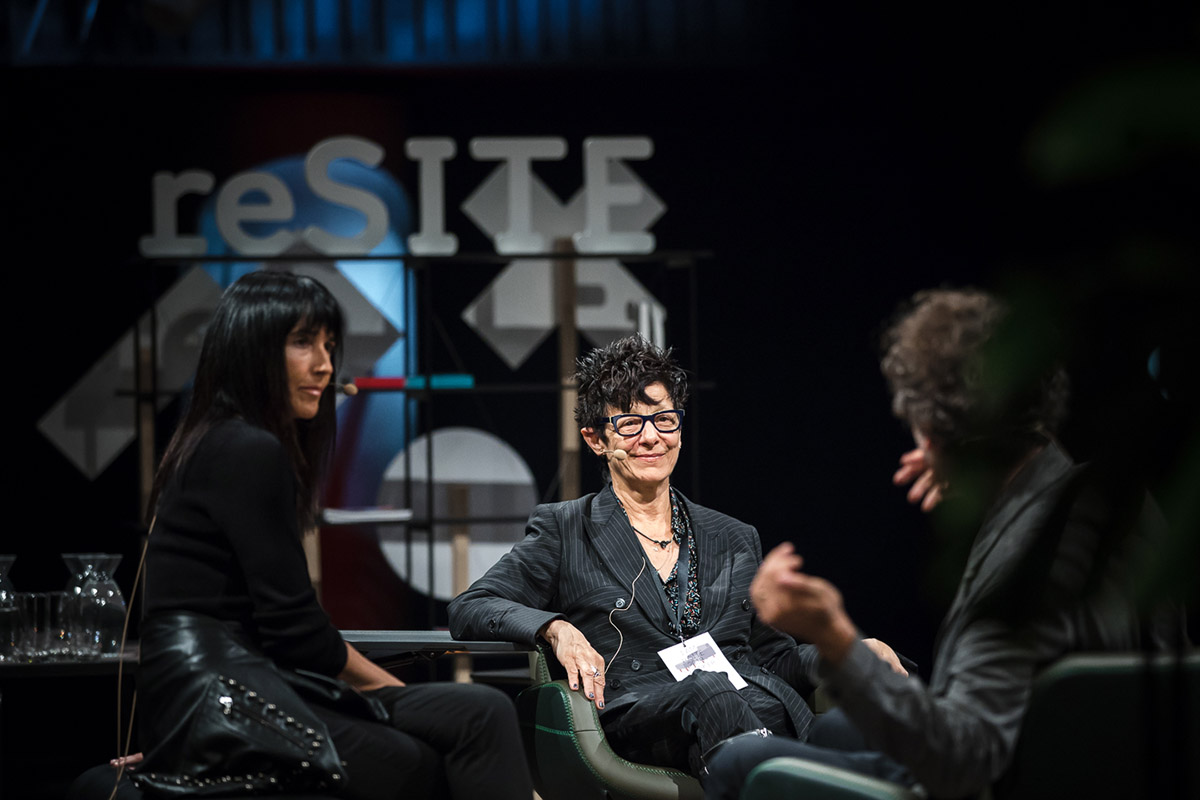
Guta Moura Guedes (Chair and Co-founder Experimenta, Lisbon, PT), Elizabeth Streb (Director of Streb Extreme Action, New York, US) and Marcus Fairs (Founder & Editor-in-Chief Dezeen, London, UK)
Co-living advocates argued for sharing what we have in the face of increasing unaffordability: "MINI is blurring the boundaries between public and private. You have the opportunity to share with your neighbor at any scale," said MINI Living creative director Oke Hauser.
An approach that is very well understood in the Albanian capital. For its Mayor Erion Veliaj, a demographic tsunami of 25-30,000 people moving to Tirana per year is an opportunity the city wants to accommodate.
"Maintaining the economic diversity is worth the price of subsidizing units and offering soft loans," he explained the state policy of supporting rents for struggling families and students, during his talk show with the managing director of Citylab Rob Bole. He says that politicians shouldn’t think about the next election but about the next generation. "Children are the drivers for the most radical change," he added.
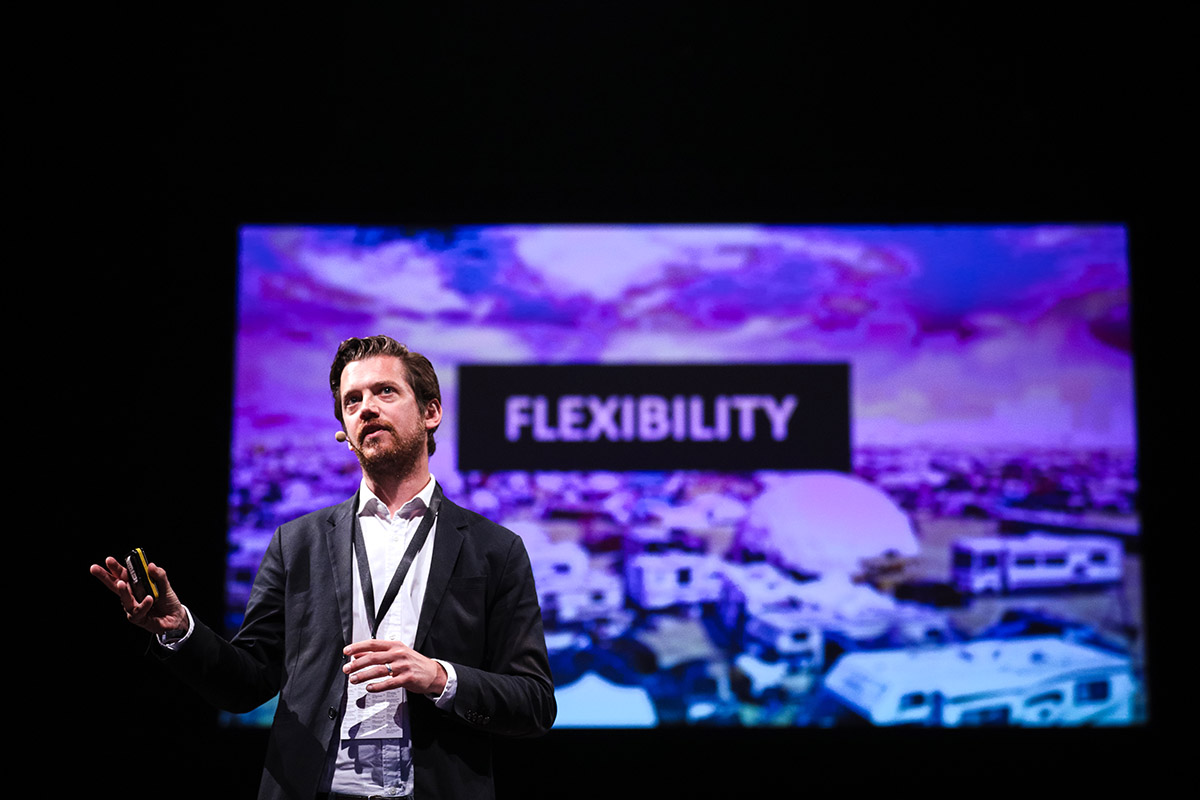
Mat Cash, Group Leader, Heatherwick Studio, London, UK at reSITE's main stage
Discoveries and encounters at reSITE
For the first time, reSITE hosted lively and popular discussions on its intimate Live Mic Stage. Sou Fujimoto, Jeanne Gang, Ricky Burdett, Dara Huang, Michel Rojkind, and other speakers shared “what I’ve learned” with visitors asking about what happens behind the scenes of their work.
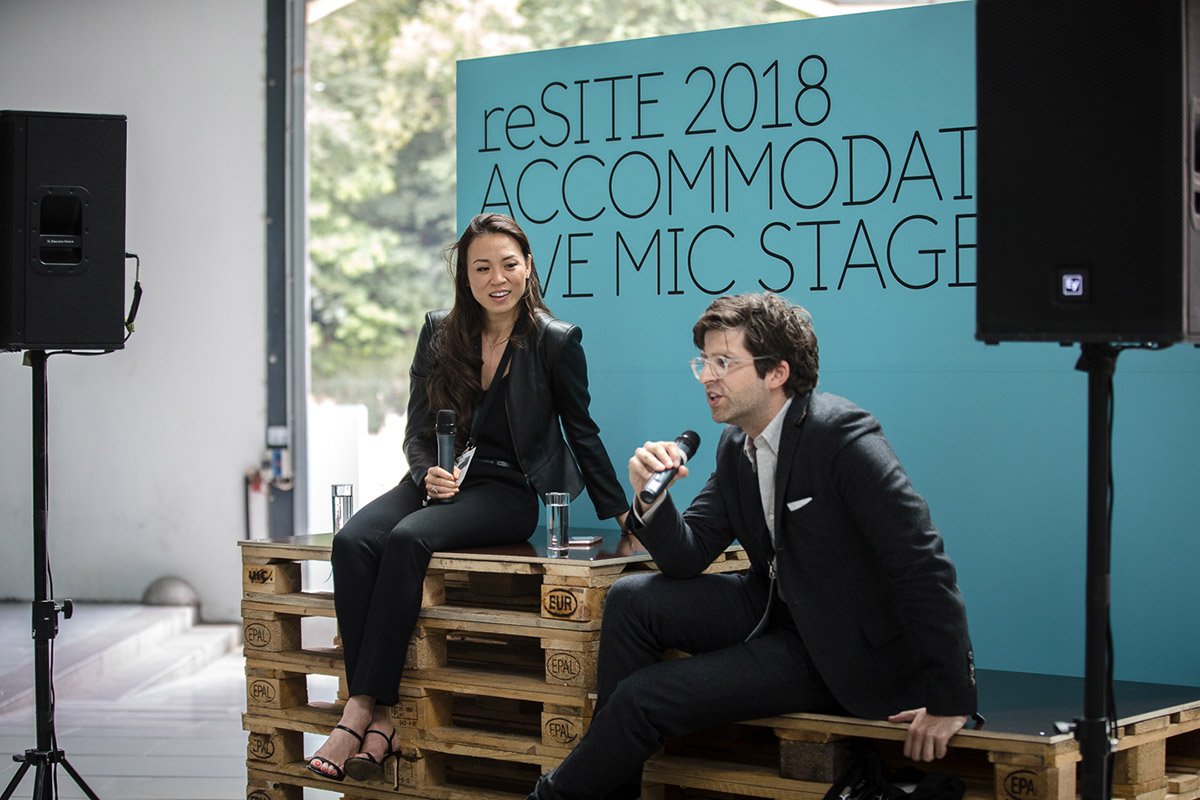
Dara Huang, founder of Design Haus Liberty and Ian Volner, Independent Journalist WSJ, The New Yorker, New York, US, at at Live Mic Stage
"How do you define a home? A place one lives permanently is an antiquated definition," said Dara Huang, Design Haus Liberty, London, UK.
reSITE also hosted the premiere of the drone documentary Elevation. The directorial debut by Dezeen founder Marcus Fairs is an eye-opening odyssey into the future of living and urban design once drones will become as ubiquitous as the Internet. Fairs noted in his commentary that "architects should collaborate with software engineers just as they do with structural engineers."
The event has again fulfilled its mission to bridge the gaps, and create long-lasting connections and relationships, by organizing social and fun events, such as the annual party in the Renaissance courtyard of Bokovka, a fun Run with Michel Rojkind, and meetups at Manifesto, the new cultural and food pop-up space powered by reSITE.
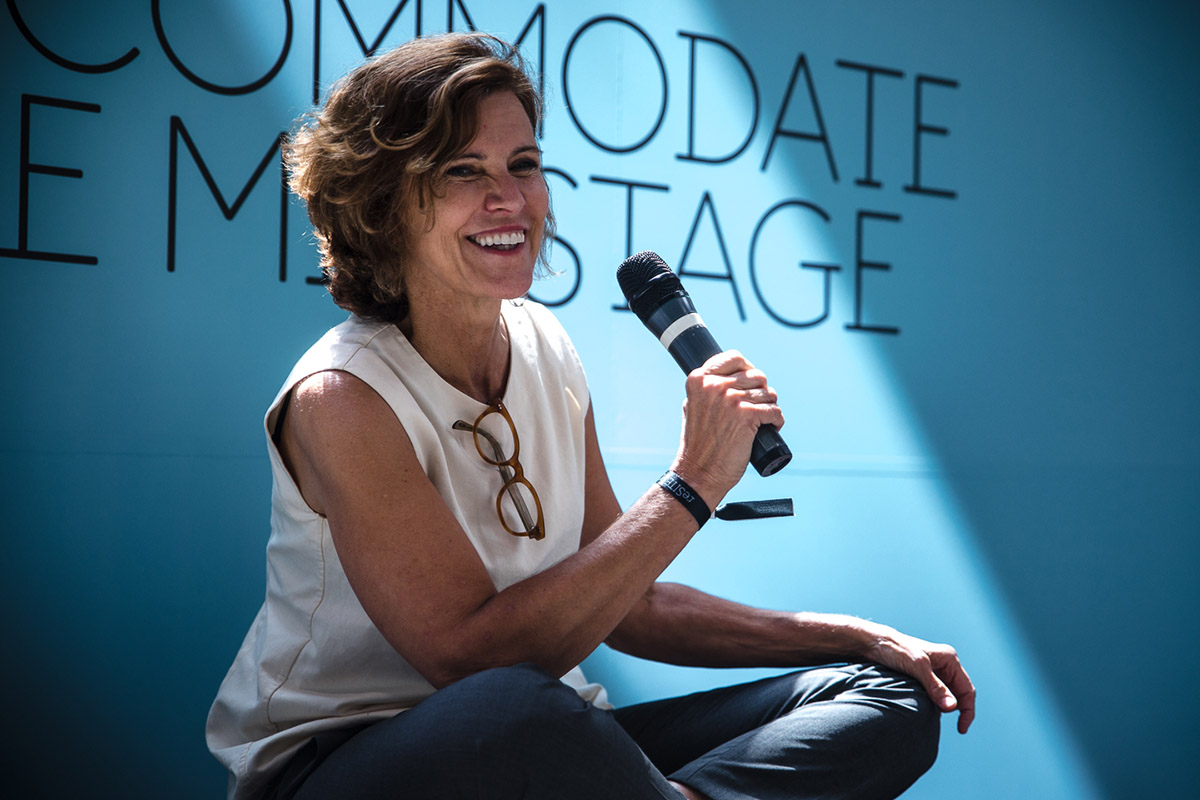
Jeanne Gang at Live Mic Stage
A bunch of workshops and discussions, open to the public, were curated and hosted by the team and partners of the Shared Cities: Creative Momentum project.
reSITE and the City of Lisbon made a surprise announcement at the event. The City has offered reSITE a 3-year commitment to collaborate on a major global summit for cities, and to identify and build pilot projects in the areas of student housing, cooperative housing, mobility and next generation office and creative space. reSITE is currently responding to the request and plans an announcement with full details in September.
World Architecture Community is the Main Media Partner for this year's event and has reported some keynotes and discussions from the two-day event. Two exclusive interviews will be online soon.
All images © Tomas Princ
> via reSITE
